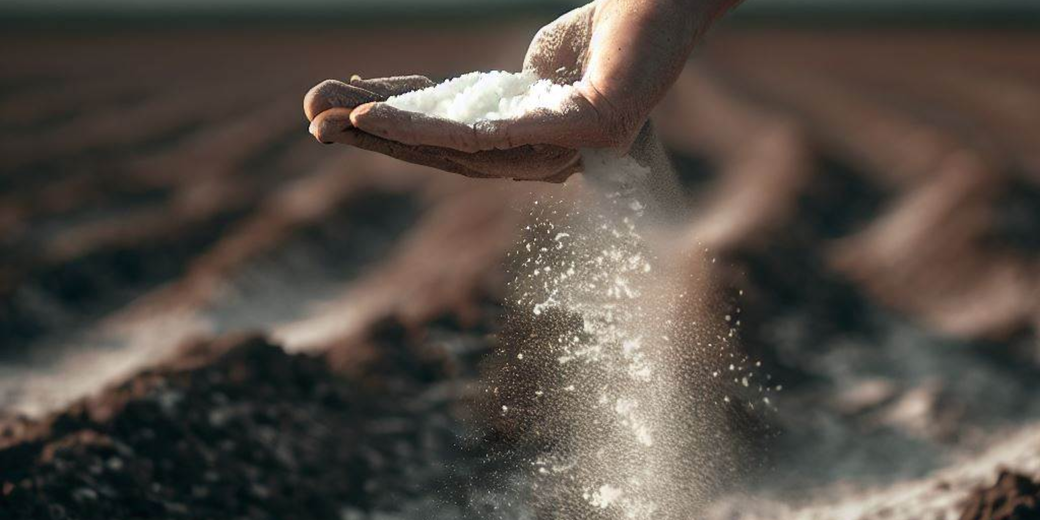Did the Romans really salt the earth of Carthage?

Few tales from history have captured the imagination quite like the story of Carthage. The ancient city, located on the coast of modern-day Tunisia, was once a powerful center of trade and commerce, controlling much of the Western Mediterranean.
However, Carthage's rise to power eventually put it on a collision course with Rome, leading to a series of devastating wars that culminated in the complete destruction of the city.
One of the most enduring and fascinating legends about Carthage is the idea that the Romans salted the earth after their victory, rendering the land barren and uninhabitable for generations.
But is there any truth to this myth, or is it simply a dramatic embellishment of history?
Historical background: the Punic Wars
The animosity between Carthage and Rome dates back to the 3rd century BCE and was fueled by their competing interests in the Mediterranean world.
The First Punic War, fought between 264 BCE and 241 BCE, was largely a struggle for control over Sicily, with Rome emerging victorious and gaining control over the island.
The Second Punic War, fought between 218 BCE and 201 BCE, was sparked by Carthaginian general Hannibal's invasion of Italy, which nearly resulted in Rome's defeat.
However, Rome ultimately emerged victorious and imposed harsh terms on Carthage, including the payment of a large indemnity and the ceding of much of its territory.
These conflicts set the stage for the Third Punic War, in which Rome sought to destroy Carthage once and for all.
The Third Punic War was fought between Rome and Carthage from 149 BCE to 146 BCE.
The war was sparked by tensions between the two powers, with Rome seeking to destroy Carthage once and for all.
The war began with a Roman siege of Carthage, which lasted for several years before the city was finally taken and destroyed.
The Roman army, led by Scipio Aemilianus, was ruthless in their conquest, and many Carthaginians were sold into slavery or killed.
The war marked the end of the Punic Wars and the complete destruction of Carthage as a city and a power in the Mediterranean world.
What is the 'salting of the earth of Carthage'?
According to legend, after the destruction of Carthage in the Third Punic War in 146 BCE, the Roman general Scipio Aemilianus ordered the city to be burned and the soil to be plowed and sown with salt.
The act of salting the earth was intended to symbolize the complete destruction of Carthage and prevent any possibility of the city's revival or resurgence.

The practice of 'salting the earth' in the ancient world
Salting the earth was a practice in ancient warfare where conquerors would deliberately spread salt over the lands of a defeated enemy, rendering the soil infertile and unsuitable for farming.
The purpose of this practice was to ensure that the conquered lands could never be used again for agriculture, and to prevent the defeated enemy from ever being able to recover.
The idea of salting the earth dates back to ancient times, and was used by various civilizations including the Greeks, Persians, and Romans.
In some cases, the practice was carried out as a symbolic gesture, while in others it was meant to be a practical military strategy to weaken an enemy and prevent them from regaining strength.
How often was this practice used?
However, historians today debate whether the practice of salting the earth was actually carried out in many instances, as it was not always practical or effective.
It would have required a significant amount of salt, which was expensive and difficult to transport, and the salt would have been washed away by rain and groundwater over time.
Additionally, many conquered lands were eventually repopulated and put to use again, indicating that the soil was not permanently infertile.
Did it happen at Carthage?
There is a debate among historians regarding the accuracy of the story about the salting of Carthage.
Most tellingly, none of the surviving ancient sources mention it. As a result, historians believe it is a later myth or exaggeration.
The specific idea of the Romans salting the earth of Carthage, as we understand it today, appears for the first time in the 19th century by writers and historians seeking to add dramatic flair to the story of the Punic Wars.

The establishment of a Roman colony at Carthage in 29 BCE, known as Colonia Julia Carthago, does suggest that the soil was not permanently infertile, which would contradict the idea that the Romans salted the earth of Carthage.
The colony was settled by Roman citizens and was intended to be a regional center of trade and commerce.
This suggests that the land was being used for agriculture and other economic activities, indicating that the soil was not permanently barren as a result of salting.
However, it is also possible that the Romans may have attempted to reverse the effects of salting the earth through irrigation, fertilization, or other agricultural techniques.
Nonetheless, the fact that a Roman colony was established at Carthage does raise questions about the accuracy of the story of the salting of the earth.
Dispelling the myth
As a result, it appears that the story of the soil of Carthage being salted has no basis in the historical record.
Regardless of whether the story of the salting of Carthage is entirely accurate, it has become a symbol of the extreme measures that conquerors have taken to subjugate their enemies throughout history.
The idea of salting the earth has endured in popular culture as a powerful metaphor for total destruction and devastation.
What do you need help with?
Download ready-to-use digital learning resources
Copyright © History Skills 2014-2025.
Contact via email
With the exception of links to external sites, some historical sources and extracts from specific publications, all content on this website is copyrighted by History Skills. This content may not be copied, republished or redistributed without written permission from the website creator. Please use the Contact page to obtain relevant permission.





